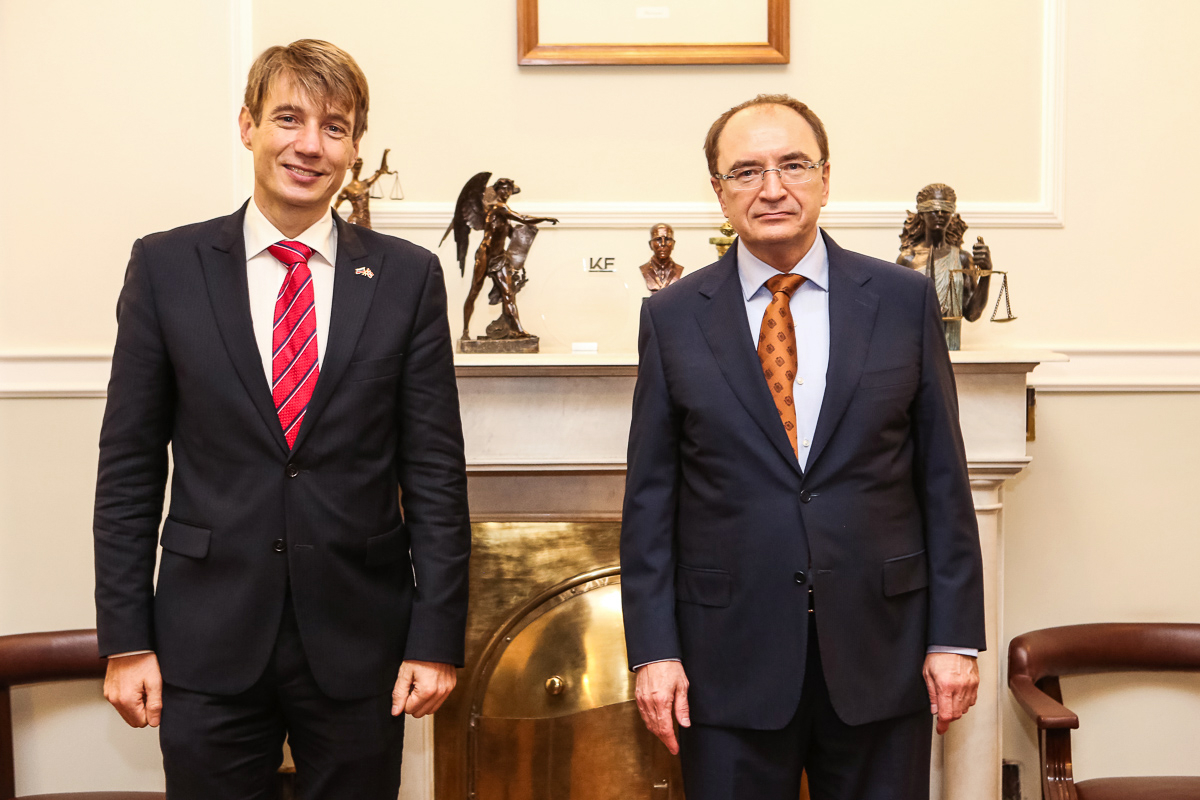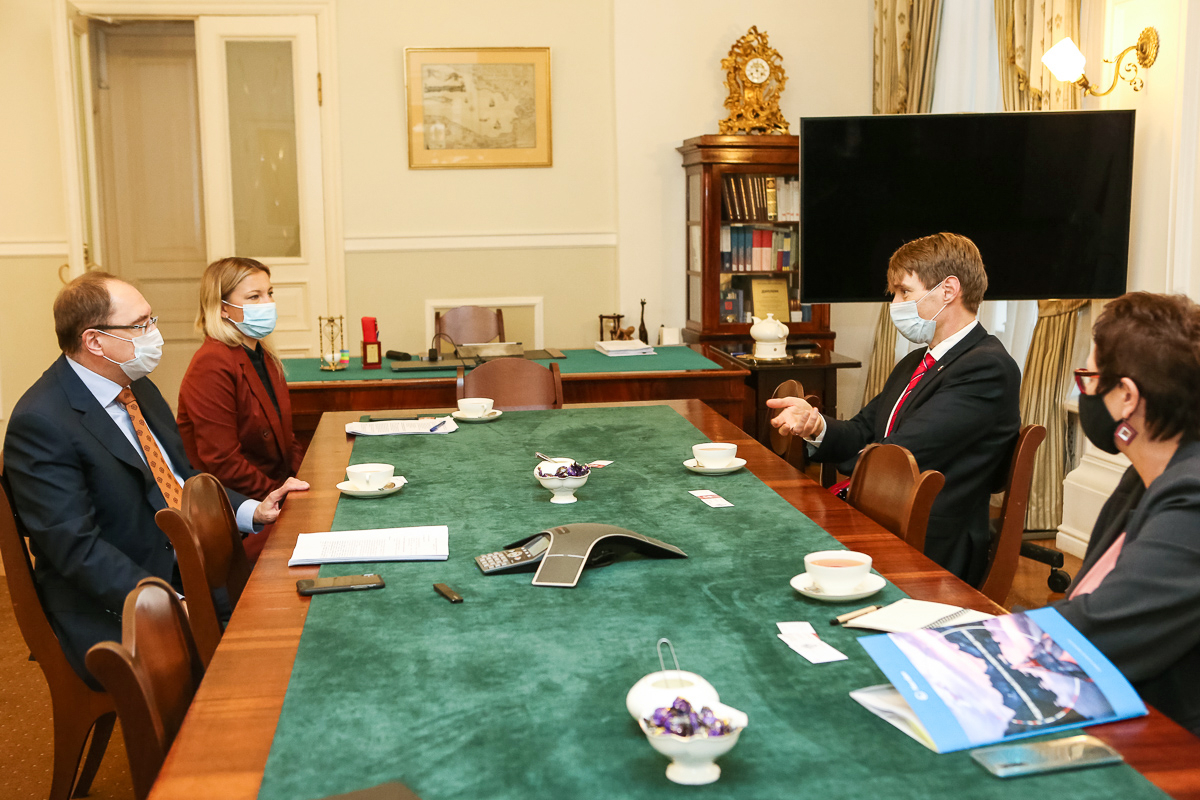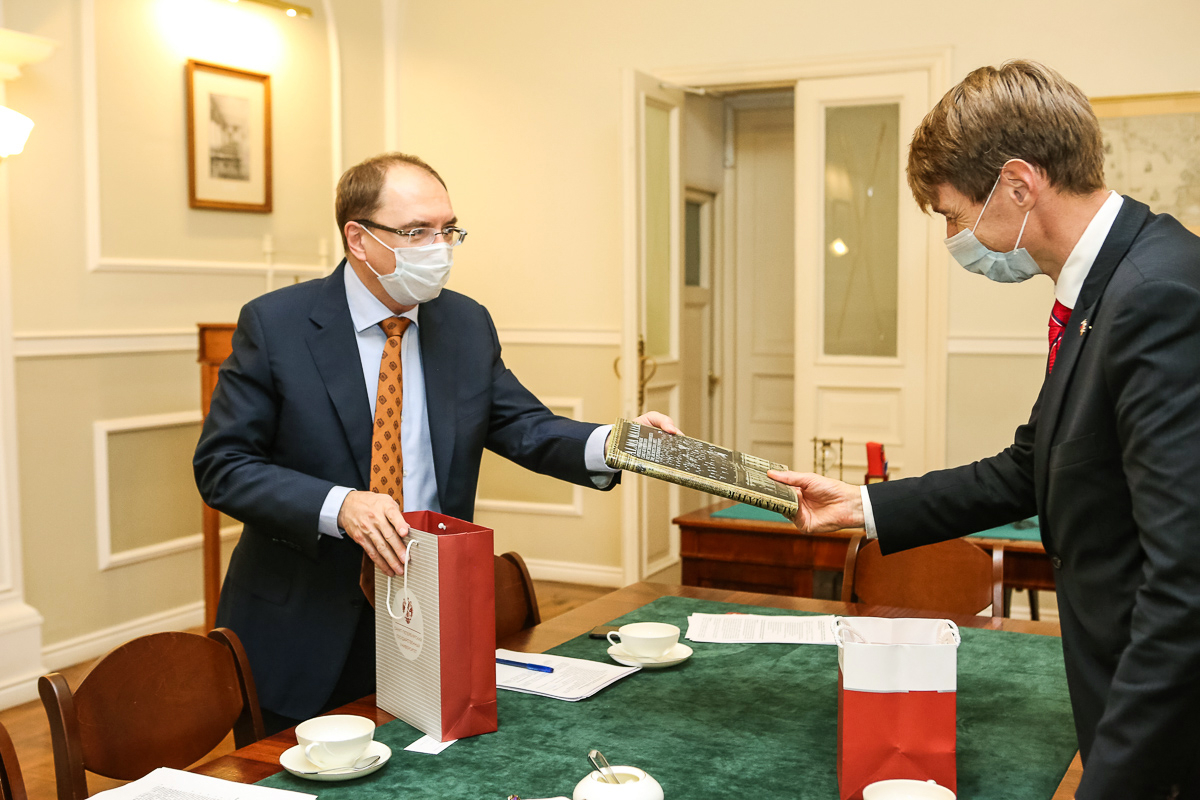The University Rector meets with the Consul General of Norway
Richard Scarborough, Consul General of the Kingdom of Norway, has visited St Petersburg University. During a meeting with the Rector of St Petersburg University, they discussed the development of international academic cooperation.

Nikolay Kropachev welcomed the distinguished guest and said that over the past ten years the University's international connections had significantly expanded. At present the University has cooperation agreements with the largest and highest ranked universities in the Kingdom of Norway, including: the University of Tromsø; the University of Oslo; the University of Bergen; the University of Stavanger; the Norwegian School of Economics; and the Norwegian University of Science and Technology. Partners of the University also include such major organisations as the Norwegian Agency for International Cooperation and Quality Enhancement in Higher Education (Diku) and the Norwegian Research Centre (NORCE). Scientists from St Petersburg University work together with their Norwegian colleagues on high profile international projects: the average weighted index of individual publications is close to four, and the average index exceeds one, which indicates the relevance of the research.

Speaking about the University’s facilities, the Rector of St Petersburg University noted the digital infrastructure that ensures access to scientific and educational resources for students, faculty and partner scientists. Any researcher, for example, can get access to the high-tech equipment of the Research Park of St Petersburg University, ranked the best in Russia. The application to work at a resource centre or carry out a specific experiment does not require a visit to St Petersburg: it is possible to send input data or samples to the University and receive the results online. With the established remote access system, scientists of St Petersburg University were able to complete all their scheduled research during the pandemic.
One of the most important resources for the University students and staff is the M. Gorky Scientific Library, whose collection includes more than 7 million printed books and manuscripts.

The library developed together with the University, and its collections were gradually replenished with rare editions. One of the jewels of the collection is the 10th edition of the Atlas by Gerardus Mercator, the founder of cartography. The copy dated 1630, in a genuine 17th-century leather binding, is in excellent condition. However, its main value lies in the fact that all the maps in the four volumes of the Atlas are hand-coloured. Such copies are extremely rare and therefore known only to historians. Each such book is unique in its own way. The edition kept at St Petersburg University features a map of Norway and Sweden on one of the coloured engravings, which also marks the three key Norwegian cities of Bergen, Stavanger and Trondheim.
Nikolay Kropachev recounted the extensive work the University has been doing for 15 years to retrieve books from readers. Some editions were recovered from those who had misappropriated them (the story of the regional public organisation ‘St Petersburg Society of Naturalists’ can be found on the website among the materials under the heading ‘A Fresh Start’), while others were accidentally found in construction waste bags. Many years of work on returning books to the M Gorky Scientific Library of St Petersburg University brought back almost 1.3 million volumes. Some of the books, including rare and valuable ones, were irretrievably lost.

Nikolay Kropachev, Rector of St Petersburg University, listed proposals for developing cooperation with universities in Norway. One area of work could include the creation of joint online courses. St Petersburg University is a leader in the market of online education in Russia and successfully cooperates in this field with other countries as proven by the online courses developed by the University scholars together with their colleagues from Turkey, Iran, China and the Republic of Korea. Nikolay Kropachev also came up with an initiative to establish a representative office of St Petersburg University and a testing centre for Russian as a foreign language in Norway. To date, there are more than 100 such centres in 45 countries around the world. For its part, St Petersburg University would provide testing in the Norwegian language. Currently, St Petersburg University is authorised to conduct testing in nearly 20 languages and issues certificates that are recognised in other countries.
Nikolay Kropachev added that joint publications by Russian and Norwegian scientists on the Arctic have been highly commended around the world. He invited diplomats to join the Councils of academic programmes in this field.
Richard Scarborough, Consul General of Norway, said that the work of the University to return and restore library books was a feat, fully in line with the principle of ‘everyday heroism’, which he himself strives to adhere to in his life. The Consul took note of the Rector's proposals to strengthen academic cooperation and mentioned a bachelor’s programme in Russian language studies at the University of Oslo. The university plans to launch a master's programme in this field and organise student exchanges with Russian universities. Richard Scarborough added that at the moment the University of Oslo does not have a partner in Russia. He would therefore be glad to invite his colleagues to establish contacts with St Petersburg University.


